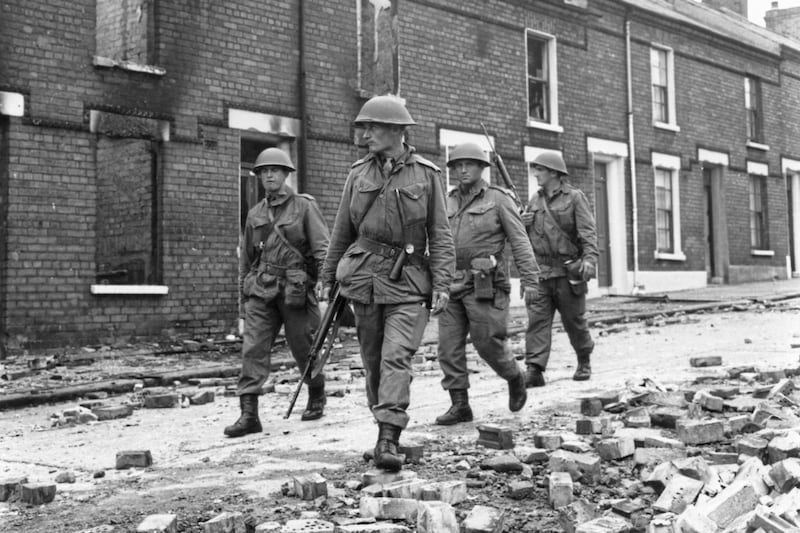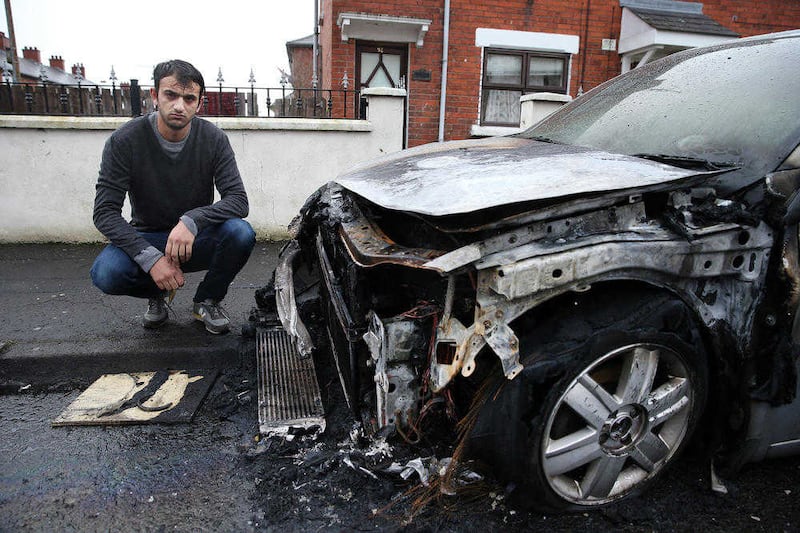MICHAEL McCann was 14 years old when he and his family were forced to flee their west Belfast home on August 14 1969 during a three-day eruption of sectarian violence which led to the deployment of the British army.
The McCanns were just one of 1,820 families displaced in 1969 during what is described in his new book Burnt Out as a 'pogrom' – a concerted campaign of organised aggression against Catholics that was subsequently whitewashed in the findings of the British government's Scarman Inquiry.
According to Burnt Out, the violence was meted out by organised mobs of loyalists – including armed RUC reservists – fuelled by the inflammatory sectarian oration of Ian Paisley and spurred on by the 'success' of the attack on civil rights marchers at Burntollet Bridge in Derry earlier in the year.
McCann, who holds a degree and masters in History from Queen's University Belfast, explains how this campaign was led in the streets by the likes of John McKeague and his Shankill Defence Association (SDA), a 2,000-strong loyalist mob which repeatedly targeted Catholic businesses and homes in Belfast between April and July 1969 – activities to which the RUC and even Northern Ireland Prime Minister James Chichester Clarke acquiesced – before systematically burning entire streets to the ground during the August riots and also helping to incite 'the battle of the Bogside' in Derry.
"I was only a child at the time," says McCann of his very personal connection to these horrific historical events.
"I think the stark reminder is that 50 years on, it changed two generations of lives. It's horrifying, absolutely horrifying – what else can you say? But I think for us to learn from history we have to know what really happened in history."
Indeed, McCann feels the proactive and systematic loyalist violence documented in Burnt Out has been airbrushed out of 'official history' in favour of a narrative which pegs the civil rights movement and nationalist/republican 'agitation' as convenient catalysts for the Troubles, with loyalists, unionists and the Northern Ireland state re-cast in a more reactive role – despite the fact that the IRA were very much 'inactive' at that time.
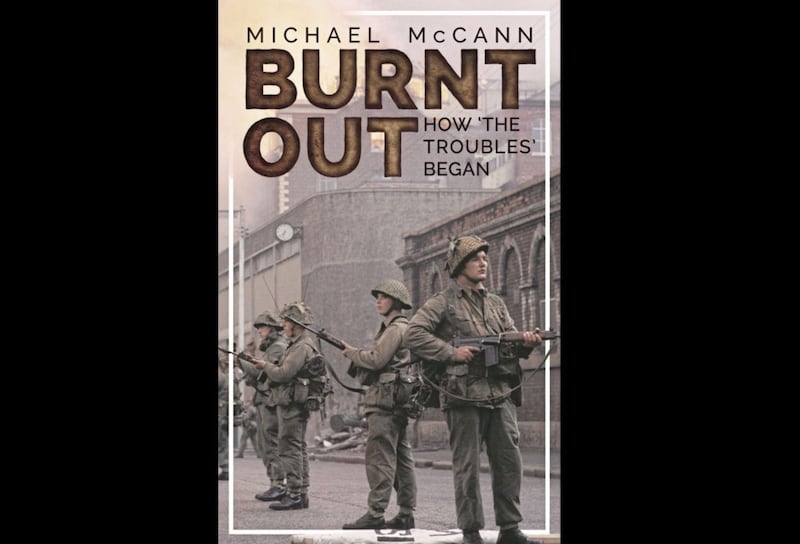
"Several years ago I decided to write the book because there was nothing out there that told the story of what really happened," he tells me of the book, which has been 10 years in the making.
"There were a few pamphlets written by local nationalists about [the burning of] Bombay Street, but I think that people don't realise that this happened throughout Ardoyne, Divis Street, Clonard – it was organised and simultaneous.
"If people or organisations or whatever aren't willing to tell the story, somebody else has to. And the people who witnessed what happened 50 years ago are now dying off."
As mentioned, Burnt Out flags up the key role played by loyalist leader John McKeague in stirring up anti-Catholic/nationalist sentiment during 1969 and channelling it into physical attacks on people and property.
"Academics have hid his name," says McCann of McKeague, who was murdered in 1982 in the wake of allegations that he was involved in sexual abuse at Kincora Boys Home in east Belfast.
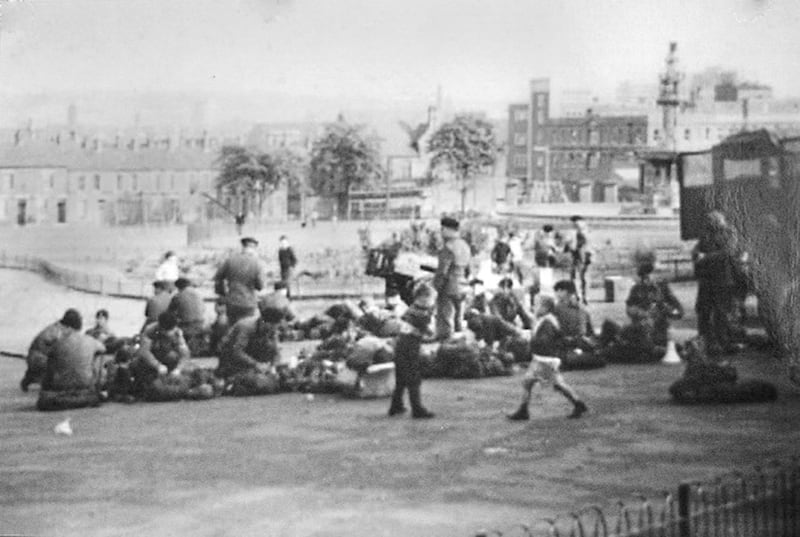
"As you can see from my work, this man was pretty evil in what he did. Ian Paisley was the main agitator and McKeague was initially a disciple of Paisley. But then he decided to open up his fiefdom on the Shankill.
"Within weeks of establishing the Shankill Defence Association, they had a couple of thousand men – and then the systematic attacks happened on isolated Catholic families on the borderline between the Shankill and the Falls.
"So the pressure was building up and then it started for real in Ardoyne during the marching period in July, where dozens of people were put out of their homes on the Shankill side.
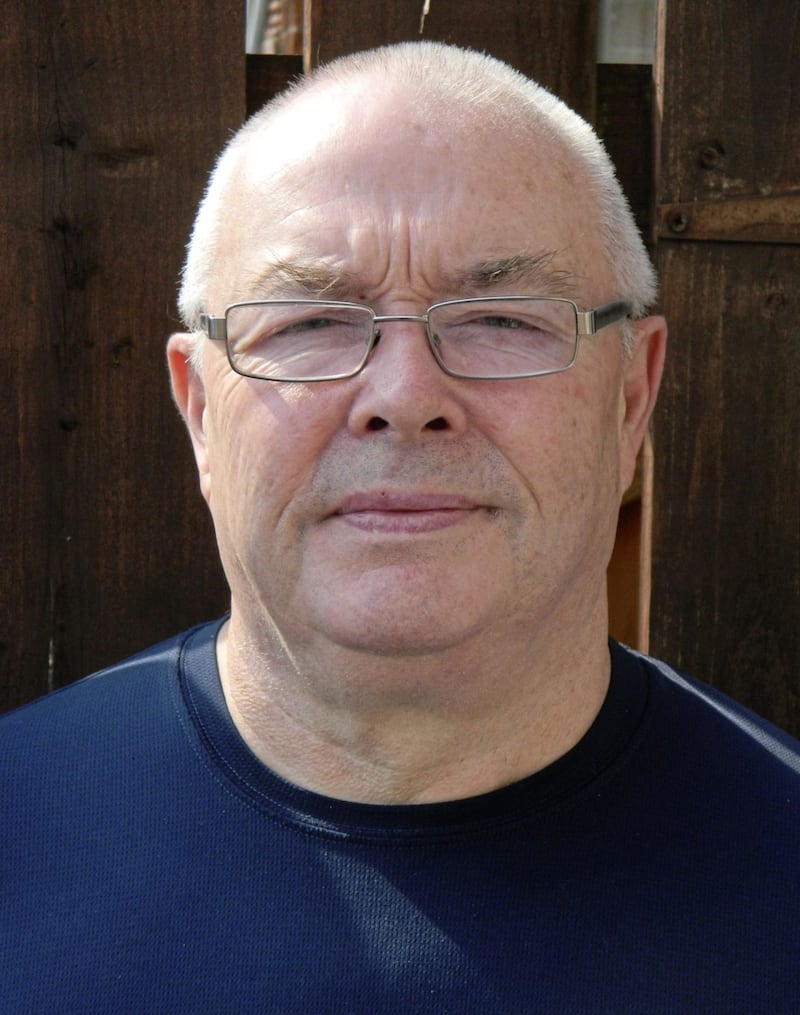
"But this was the cheek of him – he was actually going into Ardoyne and telling Protestant families that they had better get out because they were going to be burnt out [by republicans]. That's well documented."
Incredibly, at one point McKeague actually demanded a meeting with representatives of Catholic residents at Unity Walk Flats to set out the manner in which they were to be evicted – a plan he later claimed had been approved by Chichester-Clark during a meeting with the SDA at Stormont.
As McCann writes, "In the whole history of the Northern Ireland state, there can hardly be a more revealing example of the collaboration between street level extremists and the ruling Orange elite".
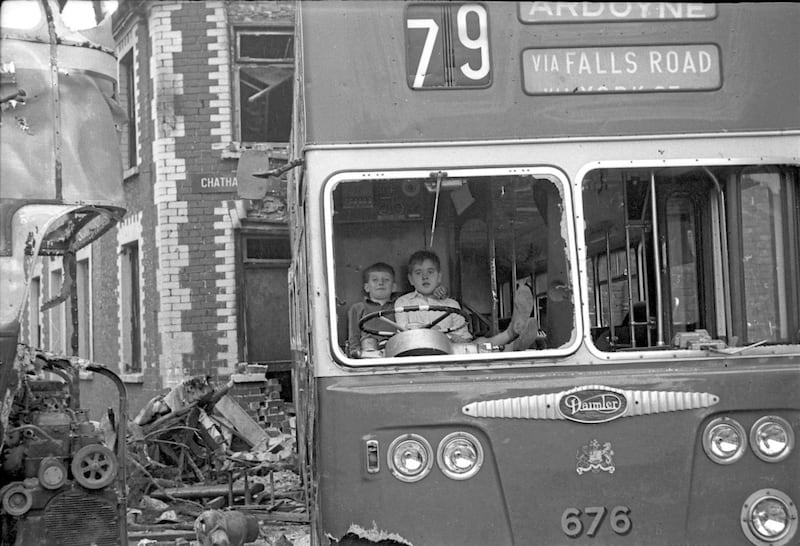
Even more damning is the evidence that the unionist Northern Ireland government continued to flatly deny the scale and brutality of loyalist attacks on Catholic/nationalist residents, suggesting that residents may have actually burnt their own homes and refuting the involvement of RUC reservists and B-Specials in perpetrating the violence – even when under the incredulous scrutiny of both international and local press.
"The media is one of the primary sources that people don't pick up on," explains McCann. "You can look at my book and say, 'well the victims or people who were burnt out are going to say that', but when independent witnesses put pen to paper and claim that they saw it, that has never come to light.
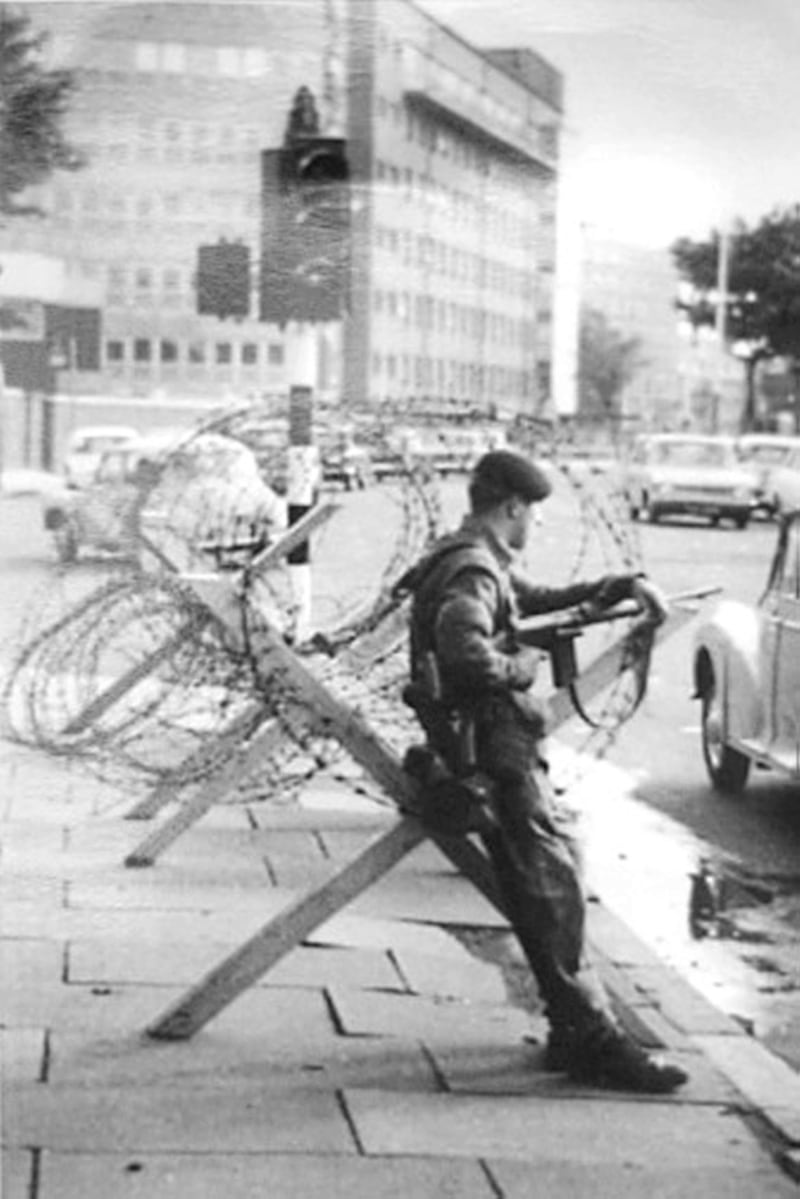
"I point that out in my last chapter, where these four ministers sat at a press conference [after the burnings] and denied that this really happened, even though there were reporters there from all over the world, most of whom were on the streets and saw exactly what happened."
While Burnt Out deliberately limits its focus to the events of 1969, McCann does dedicate a chapter to describing the aftermath of the wave of sectarian evictions which blighted Belfast and left scores of homeless Catholic refugees in their wake while also acting as a recruiting drive for a new wave of republicanism.
"I don't think the plight of the refugees has ever been spoken about, or the dramatic effect it had on everyone," he tells me.
"Losing their homes and some losing their lives, this created the Troubles, this created the Provisional IRA. But that's for others to talk about; in fact you can already buy hundreds possibly thousands of books about that – but there's nothing talks about what happened in '69.
"In fact, I've read everything that other academics have written [about 1969] and there's evasion rather than truth. So I just wanted to try and tell it from a victim's point of view."
He adds: "I have to make it clear: I'm not in any political party and I have no political affiliation – I'm just an ordinary person. I'm on the side of history and I'm on the side of what has to be the truth.
"I know people will say 'this is your truth', but I've backed it up with documented evidence that can't really be challenged."
:: Burnt Out is published by Mercier Press. Michael McCann will launch the book in Belfast on February 21 at Cultúrlann Macadam Ó Fíaich on the Falls Road at 7pm.



